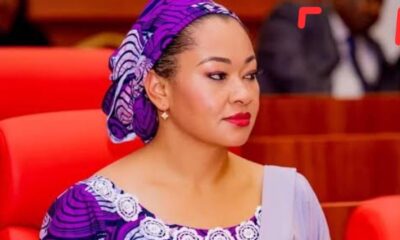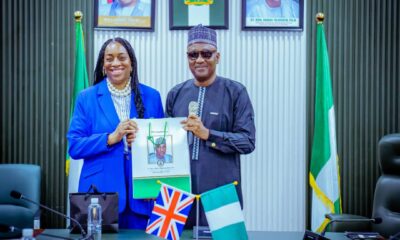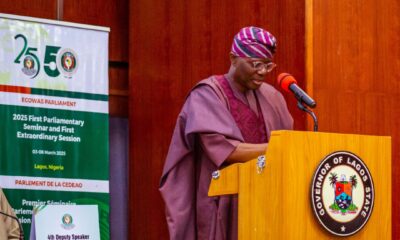News
CSOs knock Kyari over Warri refinery, plan 2 million man match in Abuja
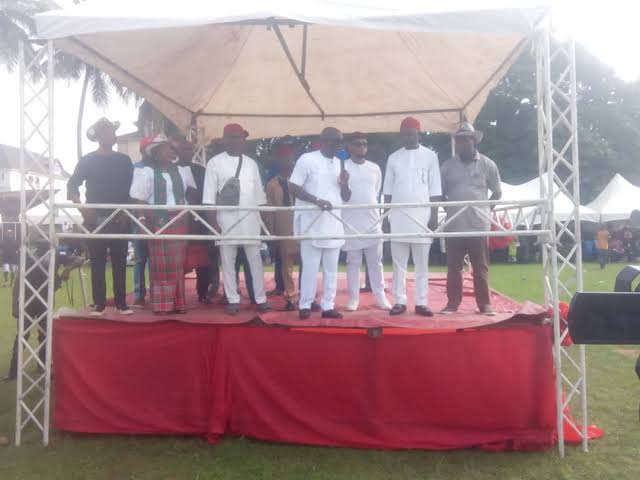
No fewer than 100 Civil Society Organisations (CSOs), have appended their signatures to mobilise their members and shut down the corporate headquarters of the Nigeria National Petroleum Corporation Limited (NNPCL), for failing to activate the Warri refinery.
This was, even as, the organisations have passed a vote of no confidence on the Group Chief Executive Officer (GCEO) of the NNPCL, Mallam Mele Kyari, describing him as clog in the wheels of development of the energy sector of Nigeria.
The Coalition requested that Mr. Kyari, the NNPCL and its agencies should come out and explain to Nigerians how the 3 billion dollars spent on rehabilitation and activation of the Warri Refinery was spent.
Coming under the umbrella of Coalition of Civil Society Groups against Corruption in Energy Sector, the group said, as long as Kyari continues to decide what becomes the faith of over 150m Nigerians using petroleum products, and by extension, the fate of over 250m Nigerians who suffer the consequences of what happens in the energy sector; President Bola Tinubu will not achieve the desired revolution in the sector.
Engr. Efe Irabor, the Spokesperson for the CSOs, via a statement on Tuesday, urged Nigerians to prepare for the worst, as Kyari did not have intention of rehabilitating and putting into operations, the refineries in Warri, Kaduna and Port Harcourt.
Irabor recalled how the NNPCL moved to frustrate the Dangote refinery and the resultant effect on the market force, saying, if it was allowed to operate with its good intentions, and crude was willingly sold to it, the Dangote refinery would have crashed the fuel price and made life bearable for the masses.
“You will recall that sometime June, the Dangote Refinery said oil majors were blocking its access to locally produced crude and the regulator (NNPCL and NMDPRA) were allowing fuel traders import high-sulphur gasoil, thereby undermining its refinery.
“But when some lawmakers from the National Assembly visited the plant few weeks later, Alhaji Aliko Dangote insisted on a test of the gasoil from his plant with others sold in the local market. The result showed that Dangote Refinery’s diesel had a sulphur content of 87.6 ppm, whereas the other two samples showed sulphur levels exceeding 1800 ppm and 2,000 ppm, respectively.
“Meanwhile, the downstream regulator, NMDPRA had alleged that the gasoil processed by the Dangote Refinery was between 650 to 1200 parts per million of sulphur, thus inferior to imported products. Meanwhile, our findings revealed that Nigeria’s regulation allows for the sulphur content in gasoil to be about 50 ppm”, the Coalition said.
The statement also averred that the NNPCL planned to convert the refineries in Port Harcourt and Warri to blending plants, just to encourage cronies to continue importing products with high density of sulphur, not minding the environmental effects on the locals and the ripple effects on the masses who use these products.
“We shall rise against this act of irresponsibility. Nigerian refineries must be put into full functions. Kyari, the NNPCL, NMDPRA and all the concerned bodies should tell Nigerians how they spent over 3 billion dollars released to put the Warri Refinery into proper functioning. Anything short of full fledged refineries shall be resisted.
“In the coming days, we shall announce the date where we shall match, with each of the 100 groups mobilizing not less than 200 members, in a 2 million-man match to the NNPC towers and the National Assembly, to demand that the Warri Refinery be activated. To demand accountability from those who collected the money to fix our refineries and are now speaking English”, the Spokesperson added.
It would be recalled that, Mr. Olufemi Soneye, the Chief Corporate Communications Officer of NNPCL, had stated in February this year, that the Warri Refinery would be rehabilitated by the first quarter of this year.
Warri, one of Nigeria’s three refineries operated by NNPCL, is situated in Warri, Delta State, and was established in 1978. The other two are the Kaduna Refining and Petrochemical Company in Kaduna State and the Port Harcourt Refining Company in Rivers State.
Warri Refinery is a complex conversion refinery that processes 125,000 barrels of crude oil daily. The facility houses a 1988-founded petrochemical plant that produces carbon black and polypropylene.
News
A’Court reserves judgment on Kano LG poll dispute

A special panel of the Court of Appeal sitting in Abuja has reserved judgment in five separate appeals arising from the legal disputes surrounding the conduct of the 2024 local government elections in Kano State.
The appeals stem from two rulings delivered by the Federal High Court in Kano, which, among other declarations, nullified the composition of the Kano State Independent Electoral Commission.
The cases include Appeal No. CA/KN/20/2025, filed by KANSIEC with the Independent National Electoral Commission and four others listed as respondents.
Another, CA/KN/233/2024, was filed by the Kano State House of Assembly and another party, with Aminu Aliyu Tiga and 14 others as respondents.
Appeal CA/KN/290/2024 was brought by the Attorney General of Kano State and six others against the All Progressives Congress and three others.
Additionally, Appeal CA/KN/291/2024 was filed by KANSIEC and eight others, with the Kano State House of Assembly and six others listed as respondents.
In the appeal marked CA/KN/233/2024, the Kano State House of Assembly and another appellant, represented by Chief Adegboyega Awomolo (SAN), urged the appellate court to overturn the judgment of the Federal High Court, which had barred KANSIEC from conducting local government elections.
Awomolo argued that the Federal High Court lacked jurisdiction to entertain the case, noting that the suit filed by Aminu Tiga and the APC was statute-barred at the time of filing.
He also contended that the plaintiffs lacked the legal standing to initiate the case.
Justice Simon Amobeda of the Federal High Court had, on October 22, 2024, restrained KANSIEC from conducting elections in the 44 local government areas of Kano State.
The judge ruled that the electoral commission’s members were card-carrying members of the ruling New Nigeria People’s Party, in breach of Sections 197 and 200 of the 1999 Constitution.
Justice Amobeda further directed INEC not to release the national voters’ register for the purpose of the local government elections in the state.
Additionally, he barred the police, the Department of State Services, and other security agencies from providing support or protection for the polls.
Unhappy with the verdict, the Kano State House of Assembly and other affected parties approached the Court of Appeal, arguing that local government election matters are under the exclusive purview of the state and can only be adjudicated by a Kano State High Court—not the Federal High Court.
After hearing all arguments on Tuesday, the three-member appellate panel led by Justice Georgewill Ekanem announced that judgment had been reserved and would be delivered on a date to be communicated to the parties involved.
News
Ondo poly workers commence strike action over unpaid wages
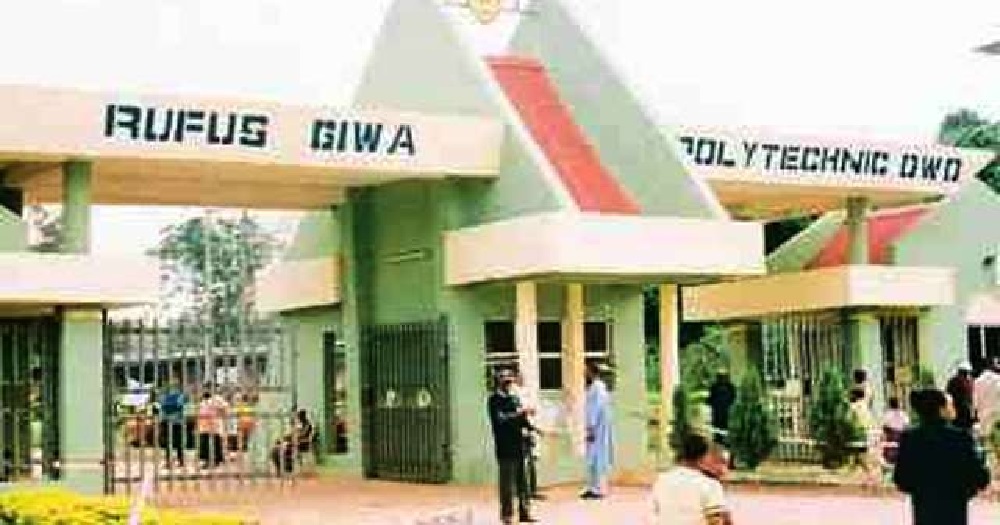
Workers at the Rufus Giwa Polytechnic, Owo, in Ondo State on Tuesday embarked on an indefinite strike over the non-payment of salaries by the Ondo State Government.
The striking workers, who are members of the Non-Academic Staff Union and the Senior Staff Association of Nigeria Polytechnics, staged a peaceful protest on the institution’s campus to express their grievances.
The aggrieved staff revealed they are being owed six months’ salaries and accused the government of failing to implement the national minimum wage.
They carried placards with messages including, “We are hungry, pay our six months’ salaries,” “Mr Governor, please implement our 2025 budget,” and “Acting Rector, please clear our 2022, 2023, and 2024 promotion arrears.”
During the protest, the Chairman of NASU, RUGIPO chapter, Mr. Julius Olugbenga-Aro, and his SSANIP counterpart, Mr. Saka Olokungboye, called on Governor Lucky Aiyedatiwa to urgently address the workers’ demands.
They lamented the hardship faced by their members, saying many are unable to meet basic needs due to the unpaid wages.
Olugbenga-Aro stated, “This protest is to express our frustration over the non-payment of six months’ salary arrears and the failure of the Ondo State Government to implement the national minimum wage for polytechnic staff.”
While acknowledging some of the governor’s developmental efforts at the institution, including the recent approval for the polytechnic’s conversion to a university, the union leaders appealed for more urgent actions.
They urged the state government to approve immediate payment of the outstanding salaries, ensure full implementation of the 2025 institutional budget, and begin payment of the new national minimum wage.
They also warned that failure to act swiftly could result in prolonged disruptions to the academic calendar, further affecting students and the institution at large.
News
Court imposes N100m damages penalty on Abuja school over student’s death

A Federal Capital Territory High Court in Abuja on Tuesday awarded the sum of N100m in general damages against Louisville Girls Secondary School, Gwagwalada, for negligence of duty of care which led to the death of a student.
Mr Ifeanyi Ikpeatusim had sued the school for negligence that resulted in the death of his 9-year-old daughter, Kamzie,
In the suit marked CV/1738/18, Ikpeatusim alleged that the school’s failure to provide adequate medical attention after Kamzie who fell ill shortly after her admission and resumption in the school led to her untimely death.
Kamzie, who was admitted as a boarding student in September 2017 became severely ill by October 2 and died a few days later.
Justice Sylvanus Oriji, while delivering judgment in the suit brought before the court after awarding the N100m cost, ordered a 10 per cent interest on the judgment sum from April 8 until full payment.
He also awarded an additional N300,000 as the cost of the suit.
Justice Oriji while pronouncing the decision of the court, held that the evidence presented showed the school and its agents acted negligently by failing to attend promptly and adequately to Kamzie’s medical needs.
“The claimant established his allegations of negligence against the school.
“There is no amount of money that can bring back the child to life,” he stated.
Justice Oriji however acknowledged the fact that one significant outcome of the case was the improvement of the school’s sickbay following the incident.
He noted that the presence of doctors attending to students twice daily was a commendable development.
While the claimant had asked the court to order the school to name one of its structures in Kamzie’s name in her honour, Justice Oriji noted that the improvement in the school’s sickbay was sufficient enough to know the school is making amends from its mistake.
“The court thinks that the improvement in the sickbay, ensuring doctors are available twice daily, is in honour of Kamzie, as part of reforms recommended by her family.
“The claimant should take solace in the fact that Kamzie has been honoured by the school through these improvements.”
-

 News10 hours ago
News10 hours agoOERAF held memorial lecture on conflict resolution, security/safety of community in Nigeria
-
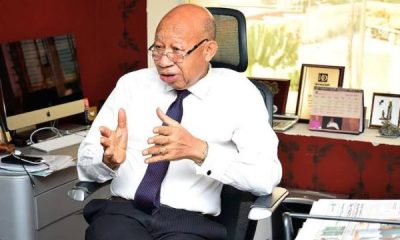
 News19 hours ago
News19 hours agoJust in: Founder of Diamond Bank and ex-chairman of MTN, Paschal Dozie is dead
-

 News15 hours ago
News15 hours agoTRADE WAR! U.S. angry over Nigeria’s import ban on 25 products
-

 News20 hours ago
News20 hours agoNaira Nosedives Against Dollar
-

 Sports19 hours ago
Sports19 hours agoReal Madrid keeping tabs on Victor Osimhen
-

 News20 hours ago
News20 hours ago2Baba’s Lover Natasha Osawaru Fired As Edo Assembly Minority Leader
-

 News19 hours ago
News19 hours agoOERAF Executive Director Dr Akpodiete, Held Memorial lecture on Essence and benefits of health insurance+Photos
-

 News15 hours ago
News15 hours agoINTERVIEW: Introduction of Child Rights Curriculum In Nigerian Universities Will Take CRA to Families – Dr Obiorah Edogor






